ANNOUNCEMENT: A Debate on War Crimes Trials in Serbia in 2016
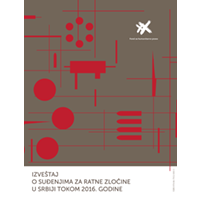
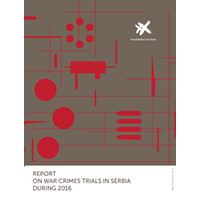 On May 18th 2017 the Humanitarian Law Center (HLC) will present “The Report on War Crimes Trials in 2016”, and host a debate about the findings and development in the prosecution of war crimes before Serbian courts. The event will be held at the Media Centre in Belgrade (Terazije 3, 2nd Floor), starting at 11:00.
On May 18th 2017 the Humanitarian Law Center (HLC) will present “The Report on War Crimes Trials in 2016”, and host a debate about the findings and development in the prosecution of war crimes before Serbian courts. The event will be held at the Media Centre in Belgrade (Terazije 3, 2nd Floor), starting at 11:00.
The Report encompasses analyses of 28 cases monitored by the HLC’s team before the war crimes departments of the Higher Court and the Court of Appeals in Belgrade, as well as before the courts of general jurisdiction. The Report also contains an overview of general findings regarding war crimes trials held during 2016, as well as important social and political events relevant to war crimes trials in Serbia.







 Students attending the Master’s Programme at the Geneva Academy of International Humanitarian Law and Human Rights, visited the Humanitarian Law Center (HLC) on March 31st,2017, as part of their study visit to Serbia.
Students attending the Master’s Programme at the Geneva Academy of International Humanitarian Law and Human Rights, visited the Humanitarian Law Center (HLC) on March 31st,2017, as part of their study visit to Serbia.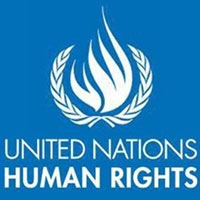
 At the meeting held on March 23rd 2017, the UN Human Rights Committee adopted the
At the meeting held on March 23rd 2017, the UN Human Rights Committee adopted the 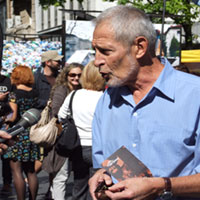
 On Saturday, March 4th, 2017, the Humanitarian Law Center (HLC) was left without its long-lasting associate and friend, Film Director Lazar Stojanović.
On Saturday, March 4th, 2017, the Humanitarian Law Center (HLC) was left without its long-lasting associate and friend, Film Director Lazar Stojanović.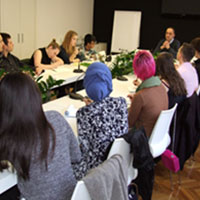
 Students from the School for International Training – (SIT) visited the Humanitarian Law Center (HLC) on Thursday, March 2nd 2017. These students go to various universities in the United States, and they are staying in Serbia, Bosnia and Herzegovina and in Kosovo as part of the Peace Studies, the programme organized by the Center for Comparative Conflict Studies at the Faculty for Media and Communication.
Students from the School for International Training – (SIT) visited the Humanitarian Law Center (HLC) on Thursday, March 2nd 2017. These students go to various universities in the United States, and they are staying in Serbia, Bosnia and Herzegovina and in Kosovo as part of the Peace Studies, the programme organized by the Center for Comparative Conflict Studies at the Faculty for Media and Communication. 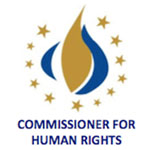
 The Council of Europe Commissioner for Human Rights announced on February 22nd, 2017 a report titled “
The Council of Europe Commissioner for Human Rights announced on February 22nd, 2017 a report titled “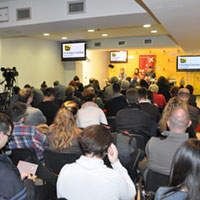
 On Tuesday, January 31st, 2017, the HLC presented its eighth dossier in a row about unprosecuted crimes and possiblel perpetrators. The Dossier “
On Tuesday, January 31st, 2017, the HLC presented its eighth dossier in a row about unprosecuted crimes and possiblel perpetrators. The Dossier “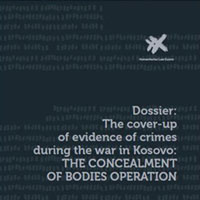
 Since 2001, mass graves containing the bodies of 941 Kosovo Albanians, mainly civilians killed outside combat situations in Kosovo during 1999, have been found on four locations in Serbia. 744 bodies of Kosovo Albanians have been discovered in Batajnica, on the outskirts of Belgrade, at least 61 in Petrovo Selo, and 84 at Lake Perućac. At least 52 bodies have been subsequently found in the mass grave at Rudnica.
Since 2001, mass graves containing the bodies of 941 Kosovo Albanians, mainly civilians killed outside combat situations in Kosovo during 1999, have been found on four locations in Serbia. 744 bodies of Kosovo Albanians have been discovered in Batajnica, on the outskirts of Belgrade, at least 61 in Petrovo Selo, and 84 at Lake Perućac. At least 52 bodies have been subsequently found in the mass grave at Rudnica. 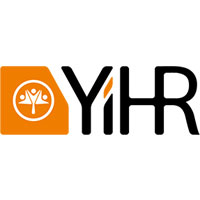
 With regard to the announced appearance of a war criminal, Veselin Šljivančanin, at a Serbian Progressive Party rally, civil society organizations demand that the ruling political parties stop putting the match to nationalism as electoral fuel, and establish responsibility for preserving and improving peace in the region as their first priority.
With regard to the announced appearance of a war criminal, Veselin Šljivančanin, at a Serbian Progressive Party rally, civil society organizations demand that the ruling political parties stop putting the match to nationalism as electoral fuel, and establish responsibility for preserving and improving peace in the region as their first priority.